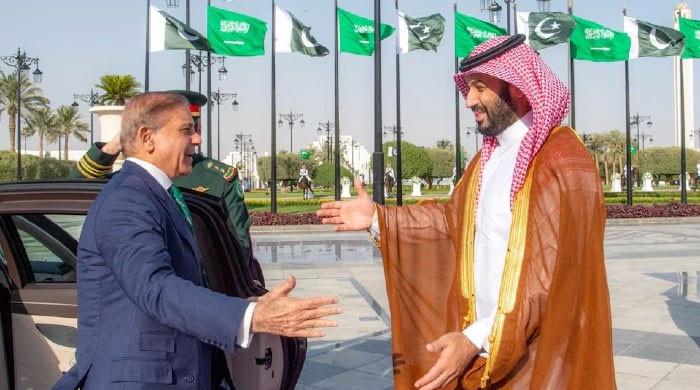Analysts say that Wednesday’s Pakistan-Saudi Arabia defence pact is set to redraw the security map of the Gulf, signalling shifting alliances and waning Arab trust in US security guarantees.
Late Wednesday evening, Prime Minister Shehbaz Sharif and Saudi Crown Prince Mohammed bin Salman signed a Strategic Mutual Defence Agreement in Riyadh, according to which an attack on either nation would be treated as an act of aggression against both. The pact marks the strongest-ever security commitment between the two long-time allies.
“With this agreement, Pakistan will become anchored as the Arabian peninsula’s net security provider for years to come”, foreign policy analyst Uzair Younus told The News late Wednesday night. Younus believes the move “is most surely driven by the recent attacks on Doha”, which have forced a “rapid recalibration of security needs in the Arabian peninsula”.
Former Pakistani ambassador Touqir Hussain, who is based in Washington DC, describes the joint statement as a reaffirmation of a decades-old strategic partnership. The agreement, he says, “is of course significant in that it reiterates Pakistan-Saudi historical security and defence cooperation”. Equally important, if not more, he adds, “is the timing of the joint statement and what it signifies for the future”. He notes that “coming in the wake of the Doha Summit”, the Pakistan-Saudi pact “shows that the Gulf countries are not just relying on empty rhetoric but also mean concrete action”.
According to Hussain, the resort to Pakistan is “the first such step with more developments to come, signifying diversification in addition to or away from the US”. This could mean “strengthening of ties with China and easing of tensions with Iran”. It is also clear, he adds, that “Arab trust in US-provided security has eroded irreparably”.
Other veteran diplomats also see the agreement as a major shift. “Pakistan and Saudi Arabia have traditionally maintained close brotherly ties,” explains Javid Husain, who served as Pakistan’s ambassador to Iran from 1997 to 2003. He says the pact would deepen their security cooperation.
For Husain, “especially noteworthy is the provision in the agreement according to which an attack on one country will be considered as an attack on the other”, which he says “will send a loud and clear signal to countries like India or Israel and discourage them from undertaking any aggressive moves against Pakistan or Saudi Arabia”.
Academics analysing the pact have also highlighted how it formalises previously informal understandings. Dr Rabia Akhtar, dean of the Faculty of Social Sciences at the University of Lahore, wrote on social media that: “This pact institutionalises the long-standing but often informal military/security ties into a formalised collective defence pact.”
She added that regarding “nuclear deterrence…at best, this is an implicit reassurance; not a doctrinal shift” and that “Pakistan is unlikely to formally extend its nuclear umbrella to Riyadh, but ambiguity itself may serve Saudi purposes”.
Journalist and analyst Syed Talat Hussain also weighed in on social media, describing the pact as: “Formidable resources meet formidable military competence to produce a game-changing combination. This couldn’t have been more timely and more strategic.”
Meanwhile, international relations expert Huma Baqai told Geo.tv on Wednesday night that the defence pact could reshape regional geopolitics, arguing that it would impact the power matrix of South Asia and the Middle East. She noted that “the 11-hour war established Pakistan and China’s supremacy, and probably triggered this”. According to her, this could also “result in a domino effect of more Gulf and Arab states seeking such alliances”.
Former foreign secretary and ambassador Aizaz Chaudhry echoed these views, telling Geo the pact was a “major breakthrough”, adding that the Saudis had turned to their “most sincere friend”. He said that, while Pakistan-Saudi defence cooperation existed before, the new clause treating aggression against one as aggression against both was unprecedented.
Originally published in The News


